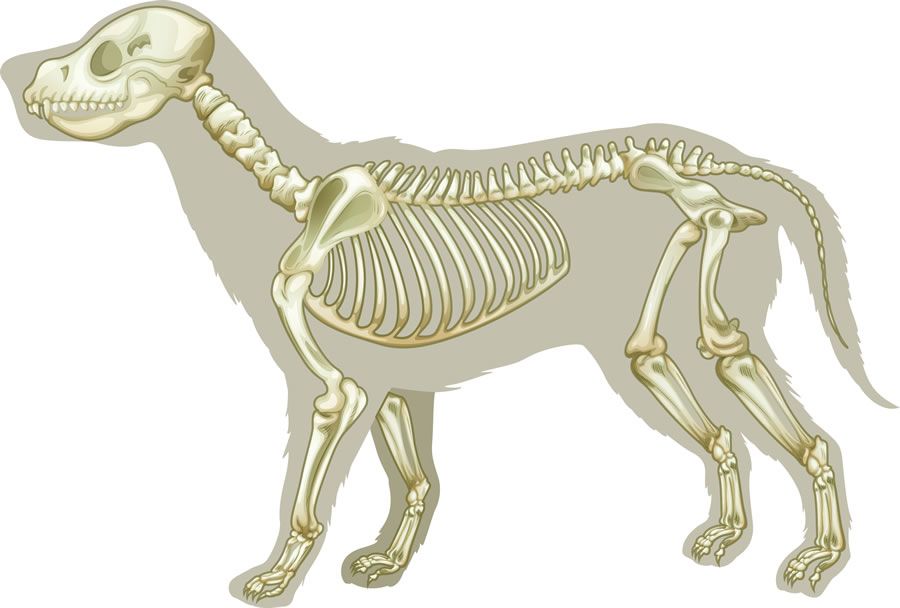It depends on the breed and the particular bone, but generally they finish growing anywhere from 3 to 12 months of age. In the case of some giant breeds it can take up to 24 months for the bones to mature. This happens when the growth plates of the bone close. The growth plates remain soft during bone formation and only calcify on maturation of the bone.
When the growth plates are still soft they are prone to injury. It is not easy to control everything that your puppy does, but to give them the best chance of avoiding injury and future complications there are some things you can manage.
Avoid High Impact Activities: This can be tricky but if you can prevent your pup playing with other larger dogs who tend to engage in rough play like body slamming, please do so. Also try and stop your puppy running up and down stairs, jumping off furniture, out of cars, or generally jumping from any height.
Ball Throwing: An easier one to control while your pup is still growing is ball or stick throwing, keep this to a minimum and avoid ball throwing gadgets completely. This goes for any kind of activity involving tight turns at speed.
Hard flooring is much easier when it comes to cleaning but it is not helpful in terms of grip for your puppy. Even for mature dogs hard flooring is not good as it puts extra strain on the muscles, other soft tissues and joints. This is because dogs are digitigrade, that is they walk on their ‘toes’ and ‘fingers’ and can’t handle hard slippery floors as well as we can with our plantigrade feet. Put down non-slip mats in living areas and hallways avoid injuries.
Early Neutering: Some vets believe neutering dogs at a young age may be a problem especially in purebred dogs. This is because the hormones normally produced on sexual maturity (typically anywhere from 6 to 18 months of age) cause the bones to stop growing. Without these hormones the bones keep growing, and may lead to further complications such as luxating patella, cruciate rupture or hip dysplasia. There is also a risk of poor muscle development. Other vets argue that the pros outweigh the cons of neutering in terms of disease prevention and unwanted litters. Talk to your own vet for advice on the appropriate age for your puppy to be de-sexed as every situation is different.
Exercise: It is a good idea not to over exercise as well, although advice on this varies. A rough guide is two separate 5 minute walks daily for every month of life. For example for a three month old this would be a 15 minute walk in the morning and a 15 minute walk in the afternoon. Try and vary the terrain to help muscular development. They will be getting other exercise as well at home just playing around the house or garden.
You shouldn’t have to wrap your puppy in cotton wool, puppies will be puppies and play is an important part of their mental and physical development. However please consider these management strategies if you are planning on getting a puppy.
REFERENCES:
Canine Massage Guild. (2019, July 29). Keeping your puppy healthy for life. Retrieved September 23, 2020, from K9-massageguild.co.uk

